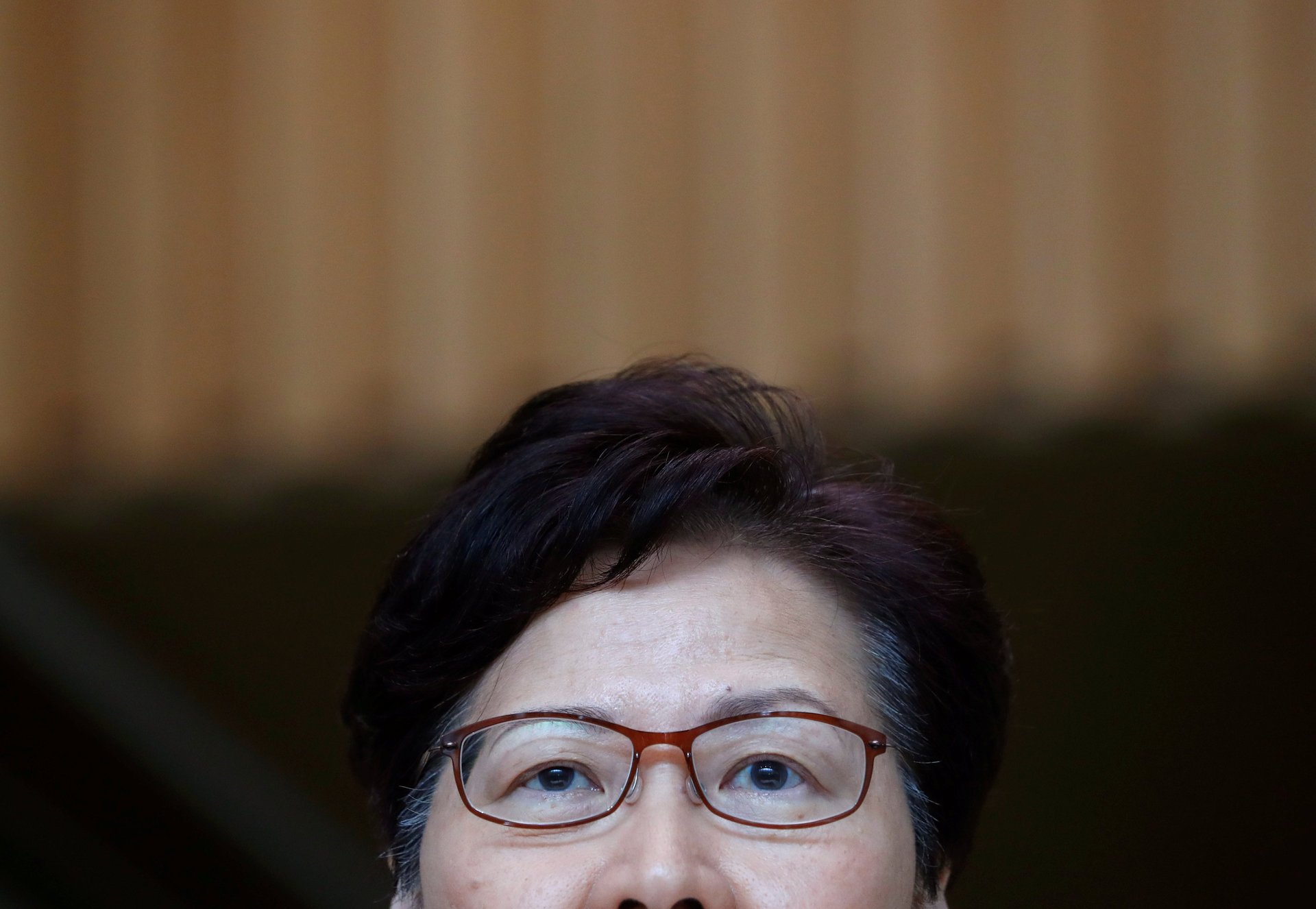The hated extradition bill will finally be gone but Hong Kong’s protests will keep going
Hong Kong chief executive Carrie Lam announced on television she will completely withdraw a hated extradition bill, after months of large-scale protests in opposition to the legislation, which would have allowed the city to send suspects to mainland China for trial.


Hong Kong chief executive Carrie Lam announced on television she will completely withdraw a hated extradition bill, after months of large-scale protests in opposition to the legislation, which would have allowed the city to send suspects to mainland China for trial.
The complete withdrawal of the bill has been one of protesters’ five core demands, but is unlikely to pacify the bulk of protesters. Their four other demands—including the most pressing one of establishing an independent investigation into alleged police misconduct, and the most ambitious one of allowing free elections for Hong Kong’s leaders—remain unmet. In recent weeks, police have drastically stepped up their use of force, including beating citizens indiscriminately in a subway station, and firing tear gas and rubber bullets in an indoor space, against regulations.
In her pre-recorded announcement she called for dialogue, but also reiterated that charges and prosecutions against protesters would not be dropped—another of the five key demands. She also called that actions of protectors aimed at symbols of China a “direct challenge” to the “one country, two systems” framework ensuring Hong Kong’s autonomy after its 1997 return.
“Fellow citizens, lingering violence is damaging the very foundations of our society, especially the rule of law. Some people, though not many, attacked the central government’s office in Hong Kong and vandalized the national flag and national emblem,” she said. “…Both have put Hong Kong in a highly vulnerable and dangerous situation. Irrespective of our grievances, or the depth of discontentment towards the government, we cannot agree or accept that violence is a solution to our problems.”
On online forums and in Telegram chat groups, the overwhelming sentiment was skepticism, and the feeling that the move—which public figures have been advocating for as a necessary step—was too long overdue. Activist Joshua Wong, who was arrested last week on charges of inciting others to participate in an unlawful assembly, wrote on Twitter that Lam’s concession was “too little and too late,” that accepting it would be unforgivable, and warned protesters against an imminent “full-scale clampdown.” A day earlier, China’s top body for Hong Kong and Macau said at a press conference it had the power to impose emergency powers in Hong Kong (paywall) on its own, while also saying Hong Kong should resolve its issues through dialogue.
Prominent democracy activist and legal scholar Benny Tai, who was sentenced to 16 months in prison for his role in the 2014 Umbrella Movement but was released on bail pending an appeal last month, wrote on Facebook (link in Chinese) that withdrawing the bill is “definitely not enough.” Only gaining full universal suffrage will ensure that “other evil laws do not have to be withdrawn” in the future, he wrote.
The sudden move by Lam may even draw still larger crowds onto the streets, as previous seemingly mistimed moves have done. On June 15, Lam suspended the bill indefinitely after chaotic clashes rocked an area of downtown Hong Kong. Fearing that the government could still bring back the bill, and angry over scenes of police beating unresisting protesters, two million people took to the streets to demand its full withdrawal and an inquiry into police actions. For weeks, Lam has refused on both counts, only saying that “the bill is dead” but stopping short of officially withdrawing it. Protests have continued unabated weekend after weekend, including a particularly chaotic clash in a shopping mall.
The withdrawal announcement comes on the heels of two Reuters reports that appear to show Lam seeking to make more concessions to protesters, but being held back by Beijing. According to a report, Lam had previously suggested to Beijing that the bill be completely withdrawn, but the central government had vetoed this proposal. And in a leaked audio recording published by Reuters this week, Lam said she had caused “unforgivable havoc” in the city, that “political room for maneuvering is very, very, very limited,” and that she would quit—if only she had a choice. Lam did not refute the veracity of the recording, but denied it was an intentional leak from her administration and insisted she never tendered her resignation to Beijing.